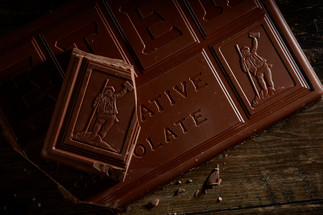Posted by Old Kentucky Chocolates on Jan 20th 2023
A Brief History of Chocolate
Chocolate has a rich and storied history that spans thousands of years. The earliest known use of chocolate can be traced back to the ancient Mesoamerican cultures of Mexico and Central America. The Aztecs, Mayans, and other indigenous peoples believed that chocolate was a gift from the gods and used it in a variety of ways, including as a beverage, a currency, and an offering to their deities.
The first chocolate factory in the United States was established in 1765 by a man named John Hanan. He used imported cocoa beans to make chocolate which he sold to other confectioners. In 1828, Conrad Van Houten invented the hydraulic press, which made it possible to produce cocoa powder on a large scale. This was a major breakthrough for the chocolate industry, as it made it possible to produce chocolate at a lower cost and in greater quantities.
In 1875, Daniel Peter invented milk chocolate by adding condensed milk to chocolate. This new type of chocolate quickly became popular and is still the most common type of chocolate consumed today. In the early 20th century, chocolate began to be mass-produced and marketed to consumers, with companies like Nestle and Hershey's leading the way.
During World War II, chocolate was rationed in many countries, as it was considered a luxury item. However, it remained popular and in high demand. After the war, chocolate consumption continued to grow, and new types of chocolate, such as white chocolate, were introduced. Today, chocolate is enjoyed by people all over the world and is a multi-billion dollar industry.
Chocolate's history is a fascinating one, with roots that go back to ancient civilizations and a story that continues to evolve today. From being a ceremonial drink to a currency, and a luxury item to a mass-produced treat, chocolate has come a long way. Today, it is enjoyed by people all over the world and is a multi-billion dollar industry. The next time you indulge in a piece of chocolate, take a moment to think about the rich history that lies behind it.

